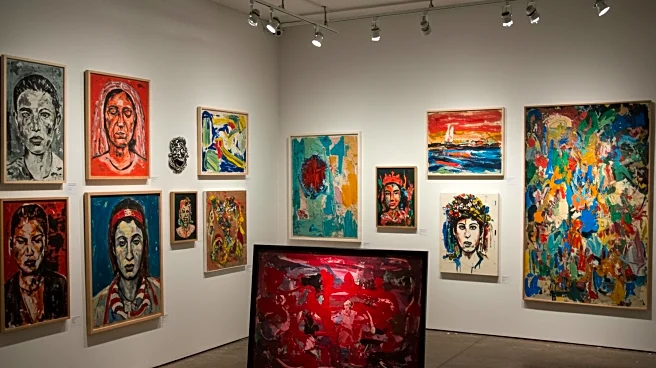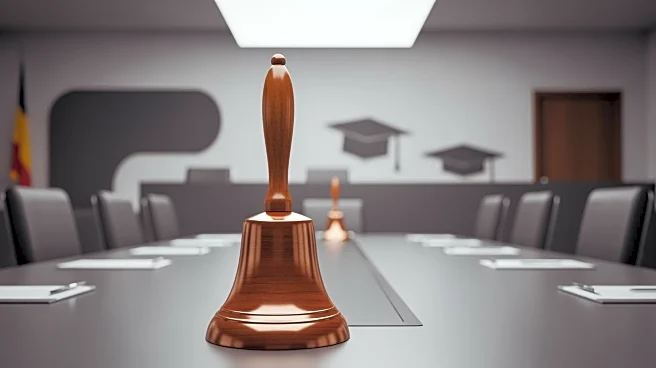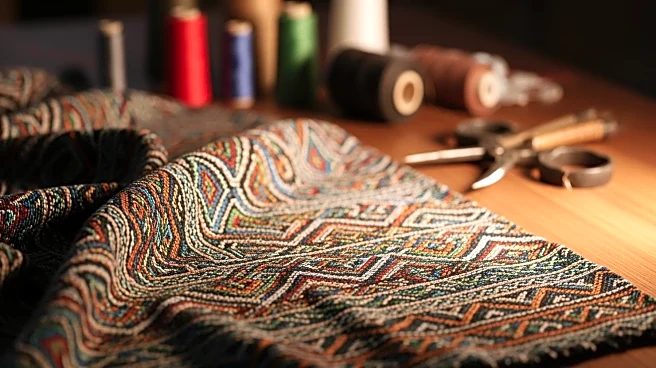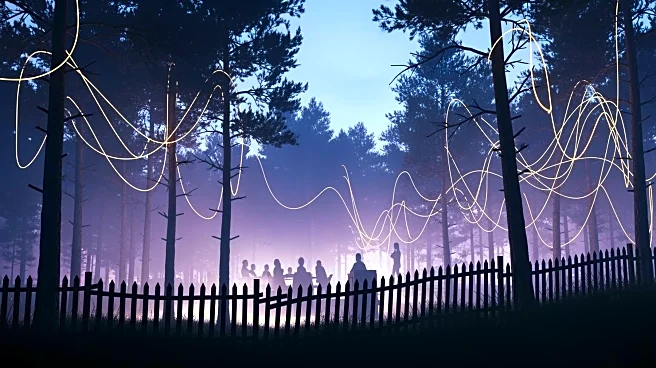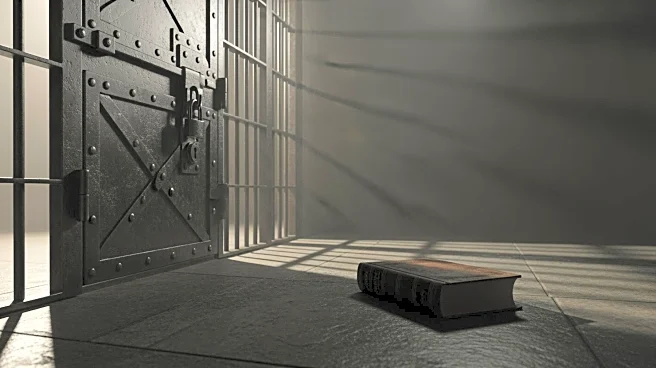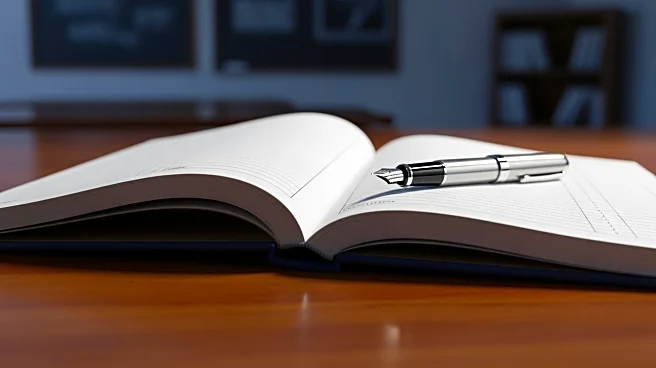What's Happening?
A Bangkok art exhibition curated by Burmese artist Sai and his wife faced censorship after drawing the ire of the Chinese government. The exhibition, titled 'Constellation of Complicity: Visualising the Global Machine of Authoritarian Solidarity,' featured works by exiled artists from China, Russia, and Iran, aiming to highlight collaboration among authoritarian regimes. Shortly after its opening, Chinese embassy representatives, accompanied by Bangkok city officials, visited the exhibition and lodged complaints about artworks by Tibetan, Uyghur, and Hong Kong artists. The Chinese officials initially demanded the exhibition's closure, but a compromise was reached allowing the show to continue with certain artworks and elements removed. The censorship included blacking out artists' names and concealing references to Tibet, Hong Kong, and Xinjiang. The exhibition's curators and artists deny promoting independence, instead advocating for freedom of expression and human rights. Sai and his wife have fled to the UK, fearing deportation to Myanmar, where Sai believes he would face persecution for his activism.
Why It's Important?
The incident underscores the growing influence of China in international cultural affairs and raises concerns about transnational repression. The censorship of the exhibition highlights the challenges faced by artists and activists in expressing dissent against authoritarian regimes. It also reflects the diplomatic pressures exerted by China on host countries, potentially compromising cultural sovereignty and freedom of expression. The situation has drawn attention to the broader issue of how authoritarian governments may attempt to silence dissent beyond their borders, impacting global human rights advocacy and artistic freedom. The exhibition's censorship serves as a reminder of the delicate balance between diplomatic relations and the protection of fundamental freedoms.
What's Next?
The couple's decision to seek asylum in the UK indicates potential international ramifications, as their case may draw further attention to issues of artistic censorship and political repression. The incident may prompt discussions among human rights organizations and governments regarding the protection of artists and activists from transnational repression. Additionally, the exhibition's censorship could lead to increased scrutiny of Thailand's diplomatic relations with China and its stance on freedom of expression. The art community may rally in support of the censored artists, potentially leading to further exhibitions or campaigns advocating for artistic freedom and human rights.
Beyond the Headlines
The censorship of the Bangkok art show raises ethical questions about the role of cultural institutions in navigating political pressures. It highlights the potential for art to serve as a powerful medium for resistance against authoritarianism, while also exposing the vulnerabilities faced by artists in politically sensitive environments. The incident may contribute to a broader dialogue on the importance of safeguarding cultural sovereignty and the rights of artists to express dissent without fear of reprisal. It also underscores the need for international solidarity in defending artistic freedom and human rights.
